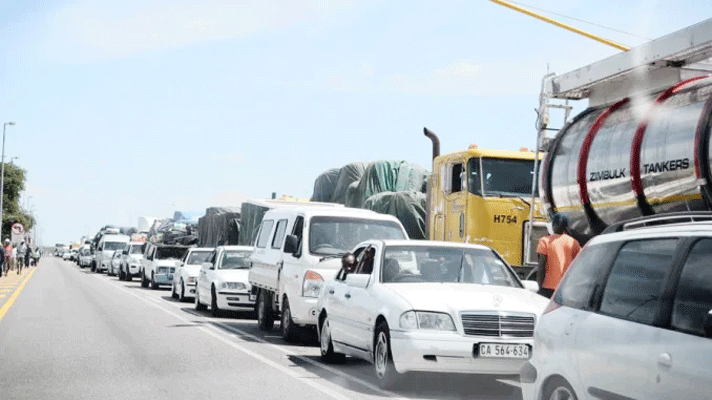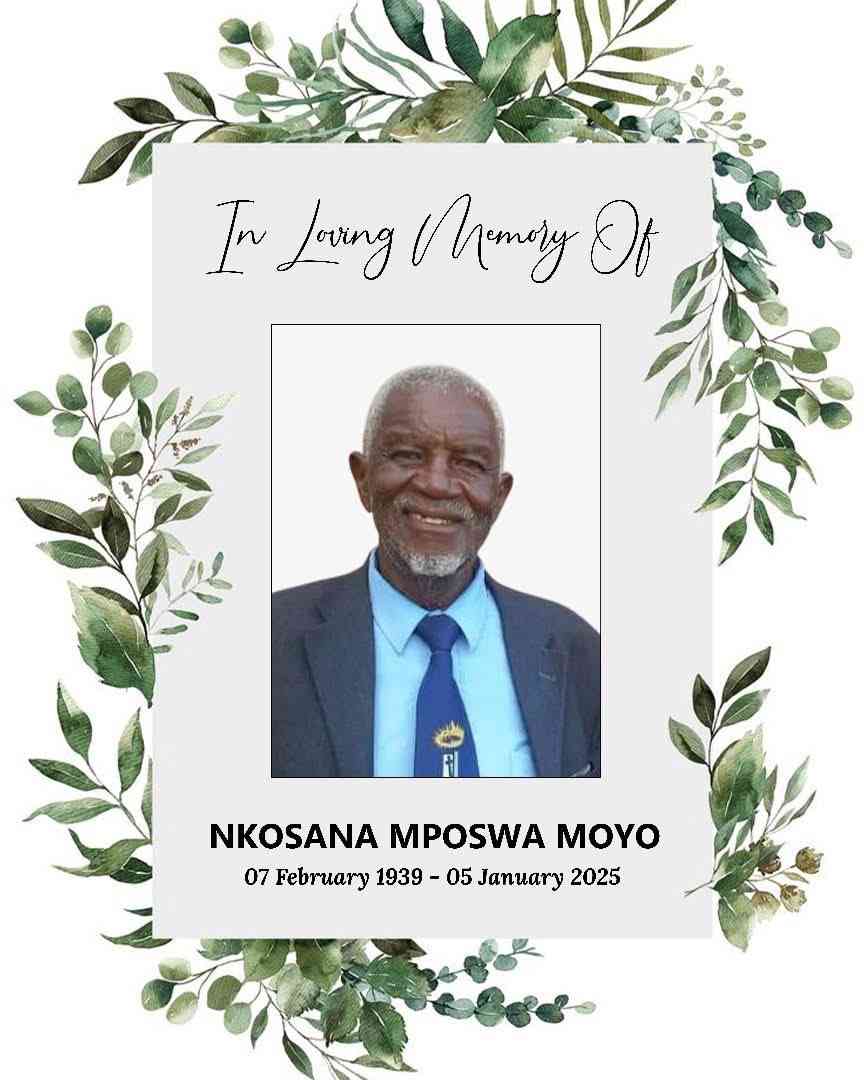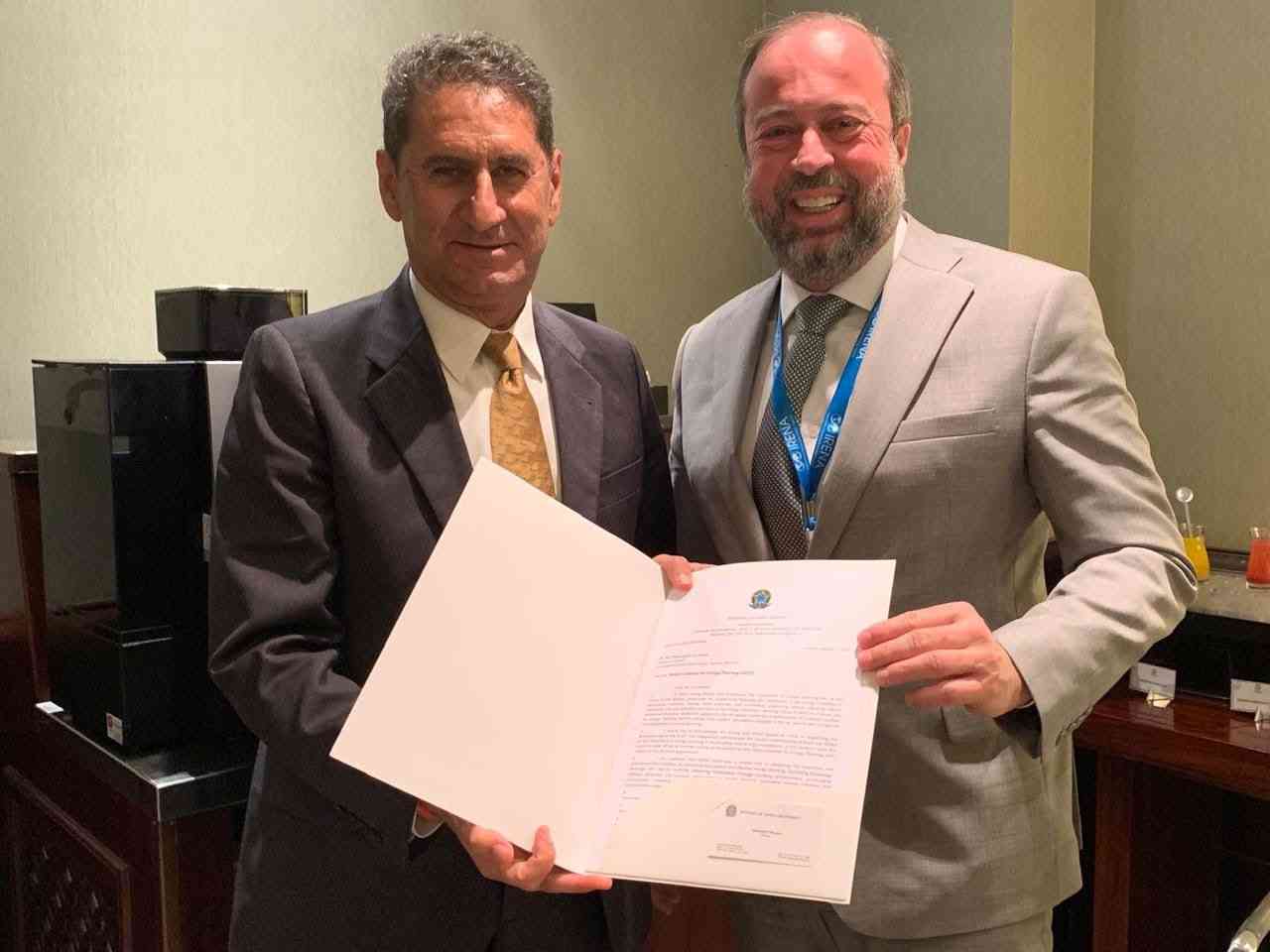
Several truck drivers and other motorists have described as a nightmare, their experience at Beitbridge Border Post where they spent Christmas after getting stuck for days on the South African side of the continent’s busiest point of entry.
BY PHYLLIS MBANJE/REX MPHISA
Owing to the rigorous Covid-19 screening on the South African side, there was traffic build-up which stretched more than 10 kilometres.
For days on end, the truckers as well as other private vehicles were stuck in the queue with reports that around 15 people died allegedly from exhaustion, dehydration and heat stroke.
Speaking from Beitbridge, a trucker for a Zimbabwean-based logistics company said the nightmare had been so bad that many passed out while seated in their vehicles.
“I arrived in Musina four days before Christmas and the situation was bad. I had been alerted about the jam, but did not expect it to be so bad,” Saidi Limbe, a 47-year-old trucker said.
Limbe is of Malawian descent, but was born in Zimbabwe. He says he has been driving trucks along the Beitbridge route, but he has never witnessed such congestion.
“We ran out of food and water, and it was very hard to cope in the afternoon in searing heat. I rationed my water and at least I had a bit to carry me through,” he said.
- Chamisa under fire over US$120K donation
- Mavhunga puts DeMbare into Chibuku quarterfinals
- Pension funds bet on Cabora Bassa oilfields
- Councils defy govt fire tender directive
Keep Reading
The few swigs of the precious liquid ensured that Limbe did not pass out.
“I needed to stay awake because robbers were pouncing on us. It was mostly smash-and-grab.”
The South African side had to deploy soldiers on Thursday to ease the situation which was fast escalating.
An official at the Zimbabwe border said it had all been happening on the South African side.
“They deployed the army because there was a huge traffic jam from Musina to the border and they couldn’t untangle the traffic so that it could then cross over to Zimbabwe.
“The army went in and sorted the matter and we have now started receiving massive volumes of lighter vehicles into Zimbabwe. We are coping on the ground, but we are under pressure,” the official, who preferred not to be named, said.
The official said the deaths of some people at the border may have triggered the response by border authorities.
The South African media has been reporting on the crisis showing footage of desperate people including babies strewn along the road.
Besides lack of water, there were no toilets and many relieved themselves right where they were parked, thus raising fears of diseases like typhoid and dysentery.
South African officials have hinted that they doubted if Zimbabwe had the manpower to handle the large quantities of travellers.
“A lot of buses are already cleared, passengers are already cleared and they are waiting for transiting into Zimbabwe and so we have a problem there as well,” a South African border official said.
Meanwhile, the jam raised serious concerns over the new Covid-19 strain which has been reported in South Africa and the United Kingdom.
In fear that the border chaos might fuel the spread of Covid-19 after 15 people, four of whom are haulage truck drivers, reportedly died at the border queues, the South African government yesterday suspended all coronavirus screening on haulage truck drivers to try and ease the congestion.
The validity of Covid-19 certificates for truck drivers in the neighbouring country has also been extended from 72 hours to 30 days after it was noted that it was taking more than five days to cross the border.
A letter by the South African Home Affairs ministry director of general health Sandile Buthelezi, which was seen by The Standard, said that they had given the nod to waiver the screening of drivers.
“The validity period for tests for truck drivers has been increased to 30 days in our revised direction to minimise inconvenience,” Buthelezi said in the letter.
The congestion at Beitbridge has also affected the lives of more than 60 000 people in Beitbridge town.
Town clerk Loud Ramagkapola said business in Beitbridge had been disrupted.
“Truck congestion has disturbed the normal flow of traffic and business in the town. We have seen lots of littering and open defecation. Post the congestion, we have a lot of cleaning up to do. Apart from fear of Covid-19 and other diseases, there will be a lot of damage to our roads,” Ramagkapola said.
South Africa right now is affected by the new strain of Covid-19. Researchers in Britain say the new strain of Covid-19 is more infectious (71% more transmissible) and it mostly affects younger people.
The new variant of the novel coronavirus has ravaged parts of Britain prompting more than 40 countries to ban travellers from Britain.
In Zimbabwe concerns have also been raised especially with the background of rampant illegal crossing of immigrants from South Africa.
However, the chief coordinator for the Covid-19 National Response Agnes Mahomva said there was no need to panic.
“There is really no need to panic because nothing has changed in terms of our response to Covid-19. We still need to observe the World Health Organisation regulations of sanitising, practicing social distancing and limiting unnecessary gatherings. These are super spreaders of the disease,” Mahomva said.
She said people must remain vigilant and not be complacent. Mahomva said many people were no longer wearing masks or maintaining social distancing.
On border preparedness, she said: “But really we should also be responsible because we hear that some people are buying fake Covid-19 certificates and officials are taking bribes.”
Portia Manangazira, the director of Epidemiology and Disease Control at the health ministry, said people should limit movement.
“Children from schools which reported cases of Covid-19 should be kept in isolation at home to make sure the disease is not spread further. The new strain is more virulent and we need to observe the regulations. Stop being complacent and irresponsible,” she warned.
Zimbabwe has been recording a sharp rise of Covid-19 cases with two people dying on Christmas holidays.
Prominent journalist and Zimbabwe Union of Journalists secretary-general Foster Dongozi succumbed to Covid-19 last Wednesday and was buried at his rural home in Sanyati yesterday.
Information ministry permanent secretary Nick Mangwana has since urged all journalists and professionals who were in contact with Dongozi to present themselves for testing.










